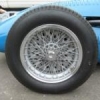There does seem to be a German - or more precisely a Saarland - connection. I've found him in a family tree on Ancestry.
Albert's father Michel Divo was born in 1855 in Oberesch Rehlingen Siersburg, Saarland and his mother Barbe Marie Dodler in 1859 in Hayes, Moselle, Lorraine, so we're already on the borders of France and the nascent German Empire. [They both died in June 1940, although on different dates and in different locations in France]
Michel's father was Nicolas Divo, born in Gerlfangen in Saarland in 1809. He died in Schwerdorff, also in the French département of Moselle, in 1879 - the eastern border of the commune of Schwerdorff also forms part of the modern border between France and Germany and the village is only about 10 kilometres from Oberesch Rehlingen Siersburg, which is of course across the border. It appears that Nicolas may have changed the spelling of his surname at some point between 1836 and Michel's birth in 1855, as his siblings are recorded variously as either Divo or Diwo and the birth of another son (possibly died in infancy?) recorded in 1836 uses Diwo. His first name was Pierre.
More definite is the fact that Nicolas was the son of Johann Diwo (1764-1825), who was born and died in - you guessed it! - Gerlfangen. However, the spelling of the family name seems to have been flexible in that generation as well, as his siblings are also variously Diwo and Divo.
Johann's father was Léonard Divo (1697-1767) - and he was born in Schwerdorff. His father was Heinrich Divo (1670-1736), born in Cottendorff, which is a hamlet just outside Schwerdorff.
So, in summary, it appears that the family used both spellings and were quite happy to pair a German-looking surname with a French-looking forename - and vice versa. That also presumes that the earlier generations were literate of course - I haven't dug down into the source material, but it might just be down to the preferences of individual recording clerks - on hearing the surname a French speaking one might put Divo and a German speaking one would write Diwo. Based purely on intuition I'd guess it's probably originally a French name - maybe a toponymic one as in 'Someone de Somewhere' - but the family tree ends at Heinrich.
ETA: or perhaps it was a patronymic and originally d'Ivo? As in son of Ivo? Saint Ivo is the patron saint of Brittany and it's also the root of the French forename Yves.




















